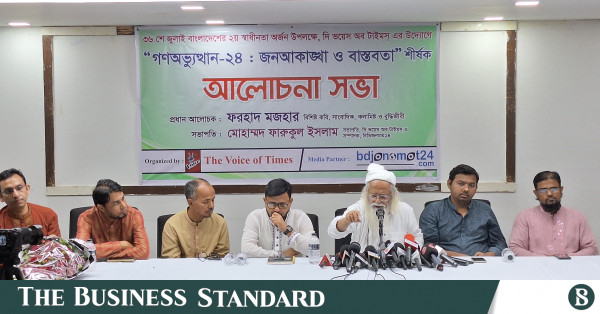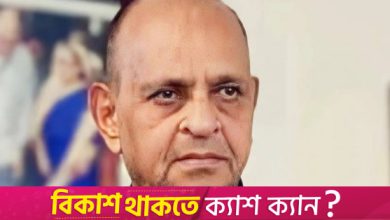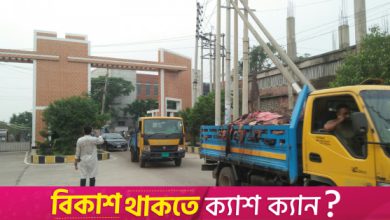Elections have no connection with democracy: Farhad Mazhar


Political analyst Farhad Mazhar has said that elections are not inherently linked to democracy, describing democracy as merely a form of governance.
“Elections have no connection with democracy. Democracy is a form of the state. The state is like a house, and elections are about who will control the house. But if the house itself is unstable, what elections will you hold? This is why there is a constant call for reformation,” Mazhar said.
He made these remarks during a discussion titled “People’s Uprising-24: Public Aspirations and Reality,” organised by The Voice of Times at the Zahur Hossain Chowdhury Hall of the National Press Club on Wednesday (18 September).
Journalist Oliullah Noman, Jamaat-e-Islami’s Paltan Thana Ameer Shahin Ahmed Khan, writer and researcher Sarwar Tushar, and journalist leader Shahidul Islam were also present at the discussion.
Mazhar stressed the importance of public participation in governance, saying, “The people’s desire is democracy. By disregarding the people’s will, an advisory government has now been formed. This is an interim government. There must be public participation at all levels of administration, but this government is not allowing that.”
He warned the government that failing to address these concerns could result in serious consequences, urging it not to view the youth and intellectuals negatively. “Without practising this, you cannot bring democracy to the state, no matter how much you hammer at it,” he added.
Discussing the magistrate powers of the army, Mazhar said, “This is not a very good sign. We wanted police reforms, but that hasn’t happened. If the police do not show up, they should be declared fugitives.
“Previously, police officers used to make a lakh taka per month. They won’t come back for just a few extra bucks. This should have been considered beforehand. The youth thought revolution was like a dinner party, but it’s not.”
Mazhar also criticised the judicial system, reflecting on past efforts at decentralisation. “Ershad once tried to decentralise the court system, but it never materialised, and we have not been able to work on it to this day.
“The court must be accessible to the people. Talking about judicial independence is easy. The One-Eleven government talked about restoring judicial independence but brought in executive rule instead.”
Concluding his speech, Mazhar called for greater intellectual consciousness and tolerance, stressing the need for true social and human justice.
“We talk about human and social justice, but in practice, we fail to establish it. We don’t listen to others, and we dance to someone else’s tune. Is this our nature or a lack of knowledge? To overcome this crisis, we need to be intellectually conscious and move society forward with tolerance,” he said.




